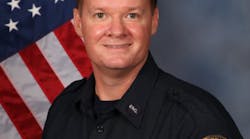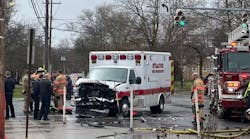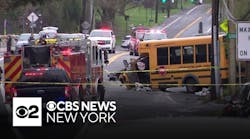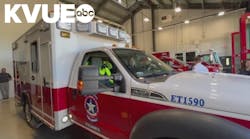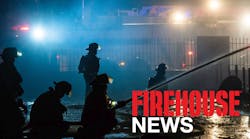July 6, 2010 – The National Fire Protection Association (NFPA) today issued a safety alert recommending that residential fire sprinkler systems containing antifreeze should be drained and the antifreeze replaced with water. The alert follows a research study and an initial set of fire tests conducted after a fire incident raised concerns about antifreeze solutions in residential sprinkler systems. The incident involved a grease fire in a kitchen where a sprinkler with a high concentration of antifreeze deployed. The fire resulted in a single fatality and serious injury to another person.
"Fire sprinklers are one of the most effective ways to save lives and property from fire," said James M. Shannon, president of NFPA. "Until we can provide further information based on additional research that is currently underway, we are urging the public to continue the use of sprinklers but to follow our interim safety guidelines by removing antifreeze if it is in their sprinkler systems.
According to NFPA, the home is the place where most fire fatalities occur, and when home sprinklers are present, the risk of dying in a home fire decreases by 83%.
Shannon said based on testing conducted, 70/30% glycerin and 60/40% propylene glycol antifreeze may provide an unacceptable risk of harm to occupants in certain types of fire scenarios, in particular kitchen grease fires. There were successful tests where kitchen grease fires were extinguished or contained with a 50/50% glycerin solution but it was felt there should be additional testing to more fully understand if there is a risk associated with 50/50% glycerin solution.
NFPA offered the following interim guidance on residential sprinklers
Fire sprinklers are extremely effective fire protection devices, significantly reducing deaths, injuries and property loss from fire.
These systems should not be disconnected.
Until the results of further testing on antifreeze are available, NFPA recommends the following:
- If you have, or are responsible for, a residential occupancy with a fire sprinkler system, contact a sprinkler contractor to check and see if there is antifreeze in the system.
- If there is antifreeze in the system, as an interim measure, drain the system and replace it with water only. Problems associated with freezing of sprinkler pipes can be mitigated by alternative measures such as insulation. NFPA hopes to provide further guidance based on additional testing before the winter freezing months.
- If you are putting in a new residential sprinkler system, design and install a system that does not require antifreeze.
"We are providing this safety alert as interim guidance based on the information we have right now," said Shannon. "As soon as more information is available, we will update the public."
NFPA also reminded the public about basic fire safety tips for kitchen fires.
All consumers should take important fire safety precautions regarding kitchen fires.
- Have and maintain smoke alarms in your home.
- Pay attention when you are cooking.
- Should you have a grease fire on your stovetop, smother the fire by sliding a lid over the pan and turn off the stovetop. Leave the pan covered until the pan cools completely.
- Never put water on a grease fire or use a fire extinguisher on a grease fire.
- Never attempt to carry a flaming pan across the kitchen.
The NFPA Safety Alert Regarding Antifreeze in Residential Sprinklers and more information on this topic can be found at www.nfpa.org/antifreeze.
NFPA has been a worldwide leader in providing fire, electrical, building, and life safety to the public since 1896. The mission of the international nonprofit organization is to reduce the worldwide burden of fire and other hazards on the quality of life by providing and advocating consensus codes and standards, research, training, and education. Visit NFPA's Web site at www.nfpa.org
